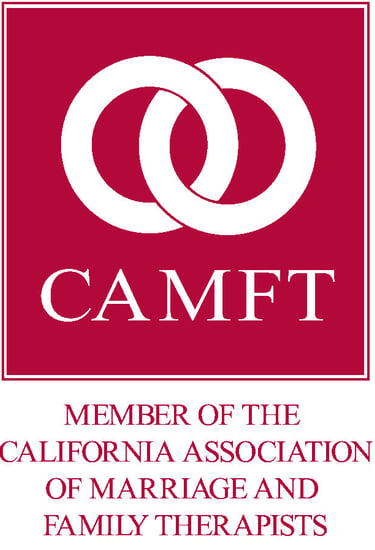When Getting Close Feels Too Risky: Avoidant Attachment and the Wounds Behind It
We know that avoidant attachment, often rooted in trauma, can impact self-compassion and relationships—and how therapy can help. Written by San Francisco psychotherapist Erik Karff.


Our experiences in life, especially early on, shape how we see and interact with the world. When we have endured interpersonal trauma or neglect (e.g., abuse, betrayal, assault), we can carry those wounds unknowingly into new relationships. Even the most insightful of us can be impacted. Our nervous systems, evolved over millions of years, get conditioned to look for transgressions from past relationships - in new ones. This can leave a person isolated, withdrawn, and on high alert. For that reason, healing often involves more than “moving on.” It involves getting to know and honor the "then and now" and in doing so, reengaging with oneself and others in sometimes new and often meaningful ways.
A compelling study published in the Journal of Aggression, Maltreatment & Trauma—“Frequency of Interpersonal Trauma Types, Avoidant Attachment, Self-Compassion, and Interpersonal Competence: A Model of Persisting Posttraumatic Symptoms”—explores how trauma, attachment, and self-compassion intersect. It found that people who’ve experienced more types of interpersonal trauma often struggle with avoidant attachment, lower self-compassion, and diminished relational effectiveness. These struggles, in turn, can feed cycles of isolation and emotional distress—but they also highlight powerful avenues for growth and repair.
Avoidant Attachment: A Protective Strategy That Can Backfire
Avoidant attachment is often a survival adaptation. It’s marked by emotional distancing, reluctance to rely on others, and a strong desire for autonomy. While these strategies may once have helped someone cope, over time they can isolate the person from the very connection that supports healing.
The study found that individuals who had experienced multiple types of interpersonal trauma were more likely to show signs of avoidant attachment, which was in turn associated with difficulties in relational expression—skills like expressing needs, setting boundaries, or navigating conflict with care.
Psychological models suggest that trauma affects how we see ourselves, others, and the world (Ehlers & Clark, 2000). It impacts how we respond to internal experiences (e.g., hypervigilance, emotional avoidance), and how we engage with others. Core beliefs about safety, trust, intimacy, and power may become distorted and generalized—especially when trauma occurs in multiple relational contexts (Resick, Monson, & Chard, 2014). These beliefs can then form the scaffolding of avoidant attachment.
Why Relationship Skills Matter
While perceived social support is a well-known buffer against trauma (Brewin, Andrews, & Valentine, 2000), the study highlights something deeper: the role of relational skills in accessing that support. Being able to identify and express needs, manage conflict, and share one’s experience with authenticity is essential for forming safe, sustaining relationships.
Yet these skills can be disrupted by trauma. People who tend to avoid emotions—often a hallmark of avoidant attachment—may find it difficult to connect or communicate vulnerably (Schumm et al., 2006). Without the tools to reach out, it’s easy to stay stuck in cycles of withdrawal and loneliness.
The Resilience of Self-Compassion (with Practices)
This is where self-compassion enters as a potent source of healing.
The study found that self-compassion was negatively associated with the number of interpersonal trauma types experienced—and positively linked to relational skillfulness. That is, people with higher self-compassion tended to be more emotionally flexible and more able to form authentic, supportive relationships.
Self-compassion, as defined by Dr. Kristin Neff, involves self-kindness, a sense of shared humanity, and mindful awareness. It helps soften the inner critic, supports emotional regulation, and can gently open the door to connection—even when that feels risky.
Here are two simple but powerful practices to begin cultivating this quality:
The STOP Practice: A 20-Second Reset
The STOP practice is a quick mindfulness tool for stressful moments. You can do it anytime:
Stop what you’re doing.
Take three deep breaths.
Observe what you’re feeling—your body, emotions, and thoughts.
Proceed with intention and care.
Even in a few seconds, this practice helps you return to yourself with awareness and compassion.
Resourcing: Reconnecting with Inner Strength
When trauma disconnects us from safety and joy, “resourcing” can help us reconnect. A resource might be a memory, place, person, animal, or belief that brings comfort or strength.
Try this:
Think of something or someone that brings you peace or joy.
Name three things you love about it.
Notice how your body responds as you reflect—your breath, heart rate, or any sense of ease.
Let yourself rest there for a moment.
This practice builds your capacity to soothe your nervous system and hold difficult emotions with more ease.
Over time, these practices help support exactly the kinds of relationships—supportive, validating, emotionally safe—that trauma survivors most need. They also build the internal conditions for reaching out when the time feels right.
If you're interested in additional resources, check out the Meditations and Practices section from the Center for Mindful Self-Compassion. There, you will also find a variety of other learning opportunities including classes and workshops.
Why This Matters in Therapy
In my San Francisco-based practice, I often work with men and LGBTQIA+ clients whose histories include both interpersonal trauma and systemic marginalization. Avoidant attachment often shows up with deep roots and real wisdom—it helped them survive. But therapy offers the possibility of a different kind of relationship: one that’s safe, attuned, and slowly transformative.
Whether you're seeking gay therapy in San Francisco, queer couple therapy in the Bay Area, or social anxiety treatment, I offer a relational, trauma-informed space where we move gently toward connection and authenticity.
Therapy as a New Kind of Relationship
Healing from relational trauma happens in relationship. If you’ve been feeling disconnected, misunderstood, or hesitant to trust, it might not mean you’re broken. It might mean you’ve been protecting yourself the only way you knew how.
Let’s shift the story—together.
Learn more or reach out if you're looking for in-person therapy in San Francisco or hoping to find a gay therapist in San Francisco.
Citation:
Bistricky, S.L., Gallagher, M.W., Roberts, C., Ferris, L., Gonzalez, A., & Wetterneck, C. (2017). Frequency of interpersonal trauma types, avoidant attachment, self-compassion, and interpersonal competence: A model of persisting post-traumatic symptoms. Journal of Aggression, Maltreatment & Trauma. doi:10.1080/10926771.2017.1322657





